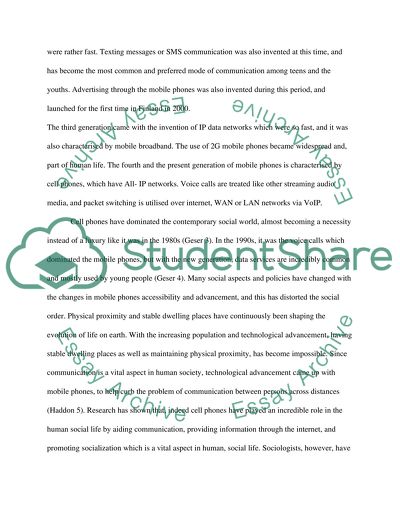Cite this document
(“How Have Cell Phones Changed Our Society Research Paper”, n.d.)
Retrieved de https://studentshare.org/sociology/1446291-cell-phones-how-have-they-changed-us-socially
Retrieved de https://studentshare.org/sociology/1446291-cell-phones-how-have-they-changed-us-socially
(How Have Cell Phones Changed Our Society Research Paper)
https://studentshare.org/sociology/1446291-cell-phones-how-have-they-changed-us-socially.
https://studentshare.org/sociology/1446291-cell-phones-how-have-they-changed-us-socially.
“How Have Cell Phones Changed Our Society Research Paper”, n.d. https://studentshare.org/sociology/1446291-cell-phones-how-have-they-changed-us-socially.


